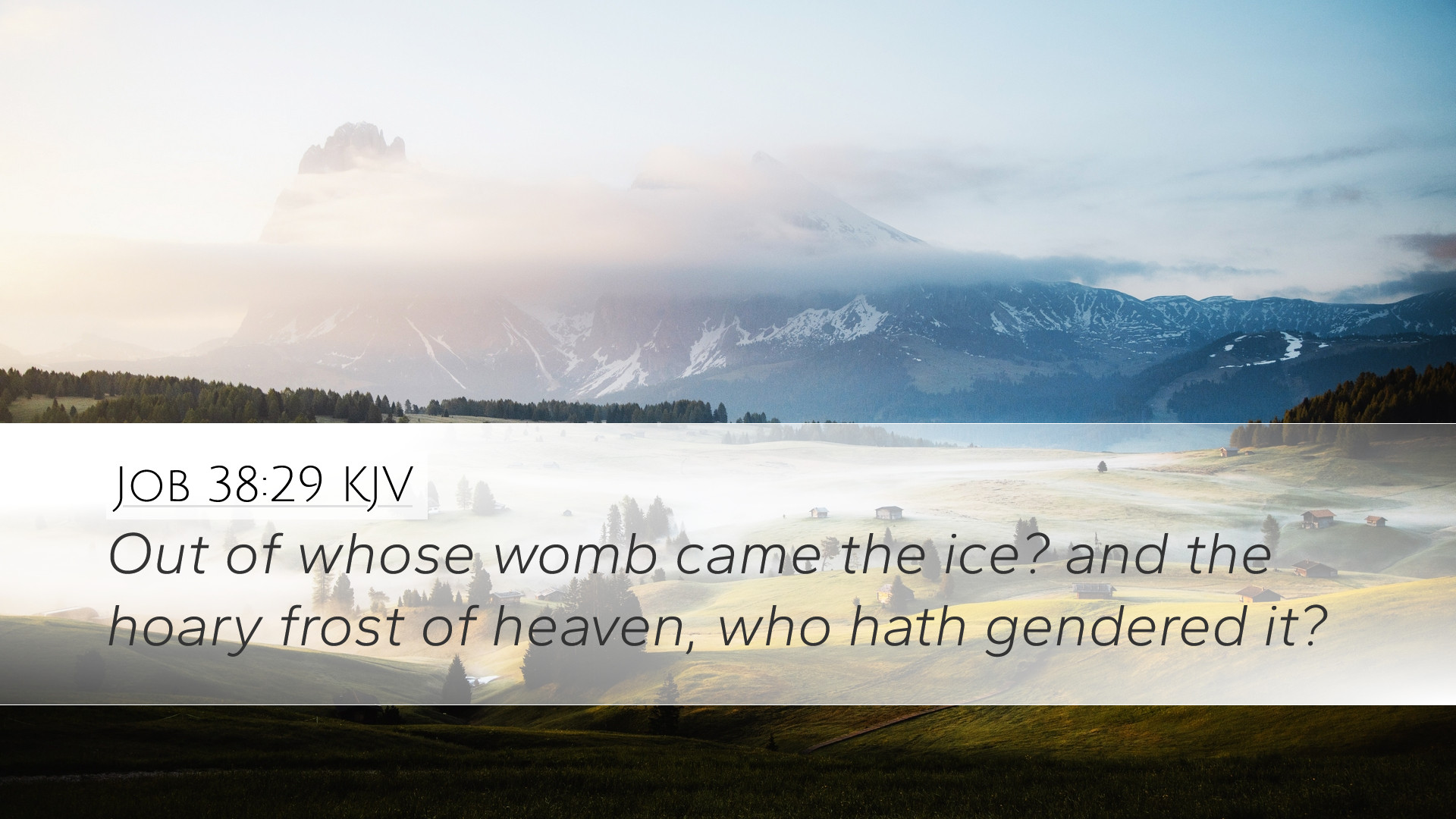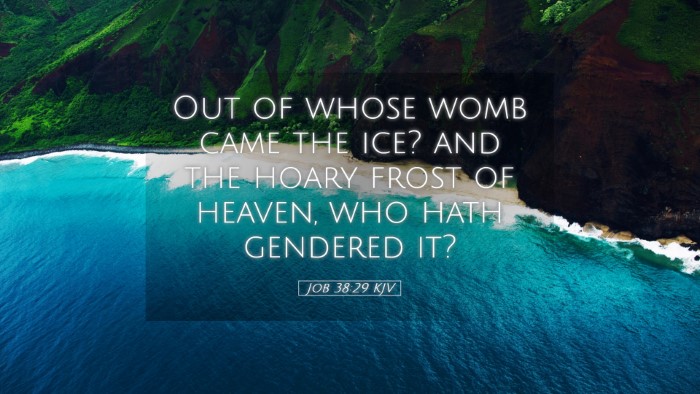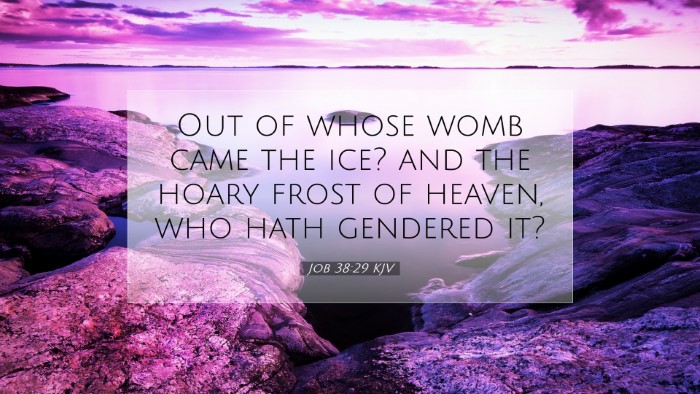Commentary on Job 38:29
Verse Reference: Job 38:29 - "Out of whose womb came the ice? and the hoary frost of heaven, who hath gendered it?"
Introduction
The Book of Job presents profound theological inquiries wrapped in an expression of human experience. In Job 38, God speaks to Job out of the whirlwind, underscoring His sovereignty over creation. This particular verse elaborates on the mysteries of nature, drawing attention to the elements of ice and frost. The inquiry invites contemplation on divine creation and God's omnipotence.
Commentary Insights
1. God’s Authority in Creation
Matthew Henry emphasizes the authority of God in the natural realm, pointing out that ice and frost are not mere physical phenomena but creations that display God's power. The question posed in the verse serves to remind Job (and the reader) of the limits of human understanding regarding the processes of creation. God's rhetorical questions are designed not only to assert His supremacy but also to humble mankind.
2. The Role of Nature in Theological Reflection
Albert Barnes elaborates on the poetic form of the verse, attributing to the natural world a significant role in illustrating God’s creative prowess. He suggests that the 'womb' metaphorically indicates the source of creation, a divine origin from which ice and frost emanate. Barnes notes that these elements often serve as reminders of God's majesty, inviting further theological reflection on how the natural world reveals the Creator's attributes.
3. The Mystery of Natural Phenomena
Adam Clarke delves into the phenomena of ice and frost, emphasizing the mystery surrounding their formation. Clarke points out that scientific understanding does not diminish the wonder of creation; rather, it can enhance appreciation for the divine order in nature. He states that recognizing the complexities of nature should lead to greater reverence toward God, the originator of such phenomena.
Theological Implications
The verse invites significant theological reflection regarding divine sovereignty over creation. It challenges believers to recognize God’s hand in all aspects of the natural world.
- Omnipotence: The questions posed compel individuals to acknowledge God’s unrivaled power and control over the universe.
- Divine Wisdom: The intricacies of creation, such as the formation of ice and frost, underscore the depths of God's wisdom beyond human comprehension.
- Humility: A proper understanding of God as Creator cultivates humility in the believer, inviting them to approach God with awe and wonder.
Conclusion
Job 38:29 serves as a powerful reminder of God’s authority and the astonishing intricacies of His creation. By examining this verse through the insights of respected commentators such as Matthew Henry, Albert Barnes, and Adam Clarke, we encounter a rich tapestry of meaning. This verse encourages not only a deeper appreciation for the natural world but also a profound reverence for the Creator who orchestrates it all. For pastors, students, theologians, and scholars alike, the call remains to explore and celebrate the wonders of God’s handiwork in both nature and scripture.


